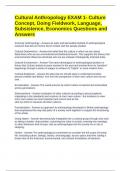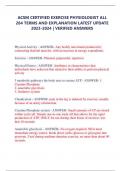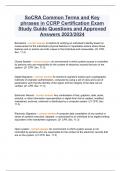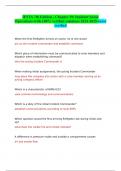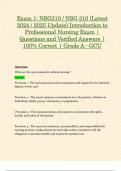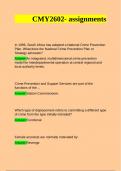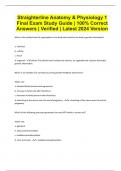Exam (elaborations)
Cultural Anthropology EXAM 1- Culture Concept, Doing Fieldwork, Language, Subsistence, Economics Questions and Answers
- Course
- Institution
Armchair Anthropology - Answer-an early and discredited method of anthropological research that did not involve direct contact with the people studied Cultural Determinism - Answer-the belief that the culture in which we are raised determines who we are at emotional and behavioral levels. This s...
[Show more]
